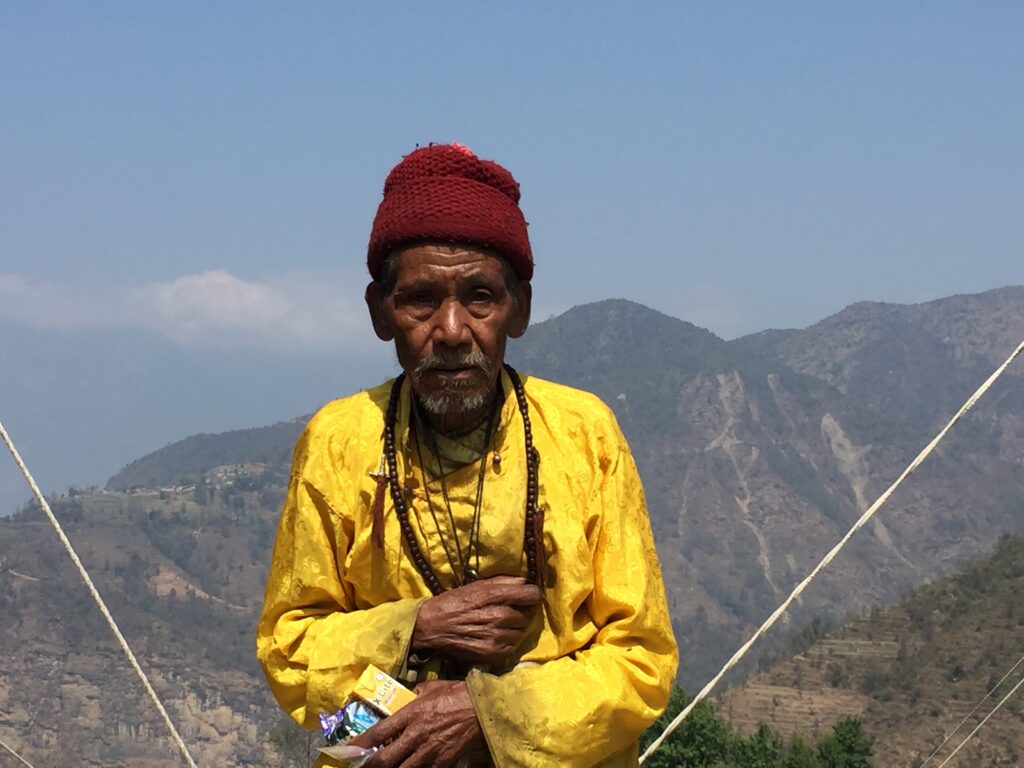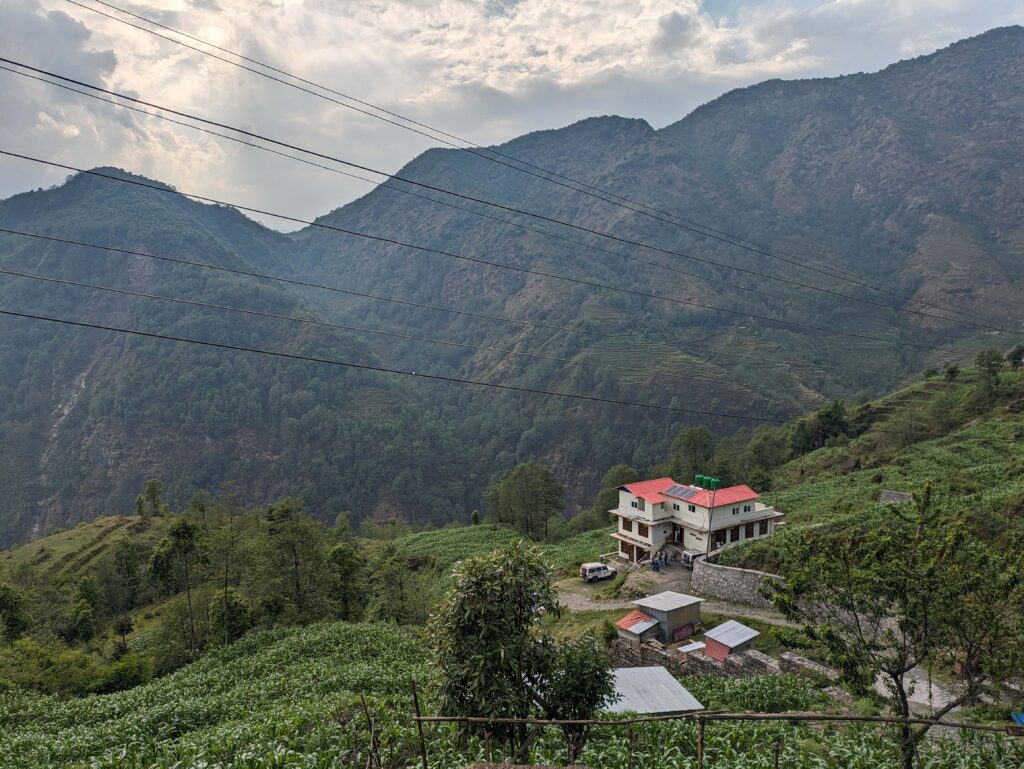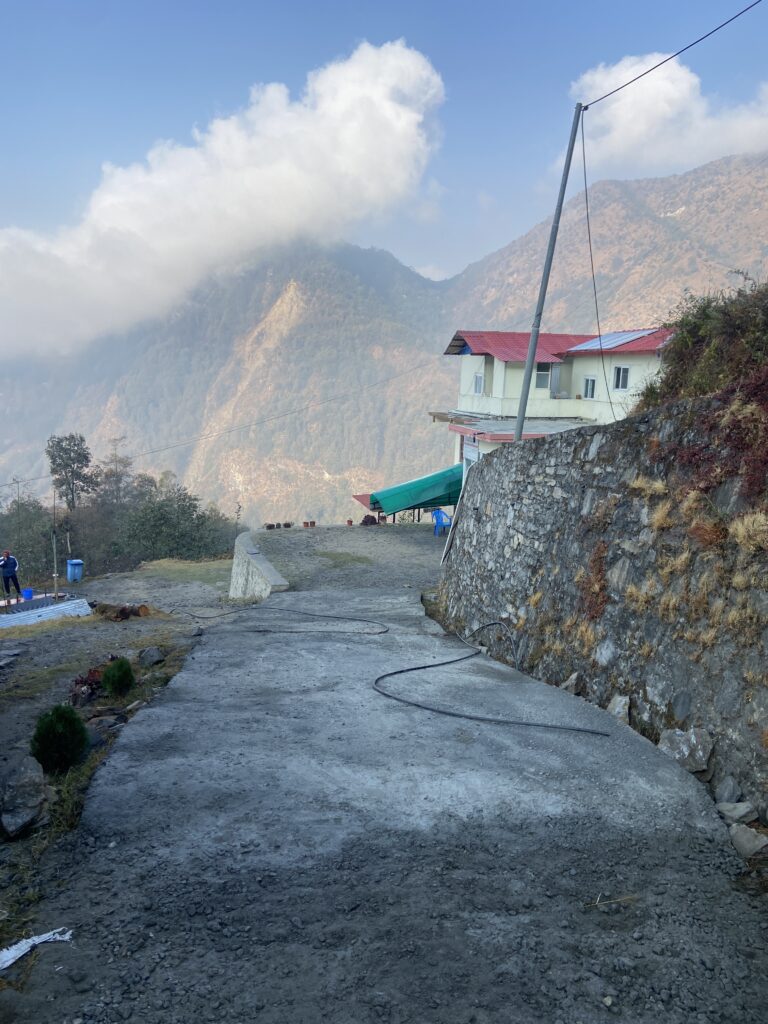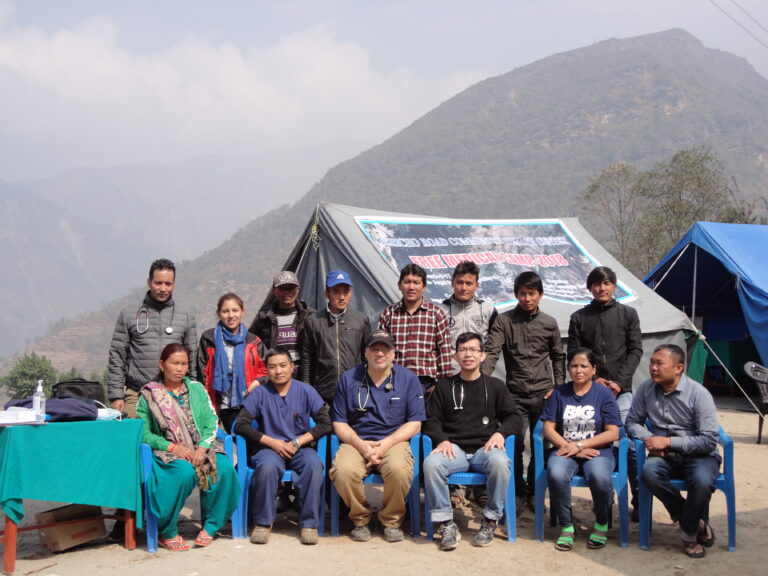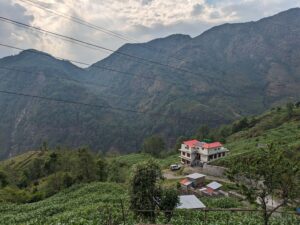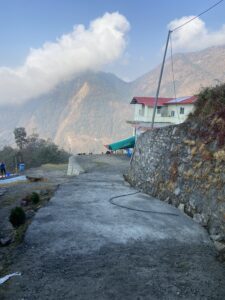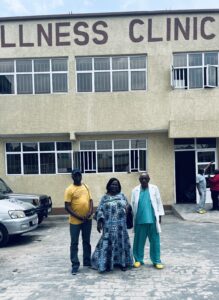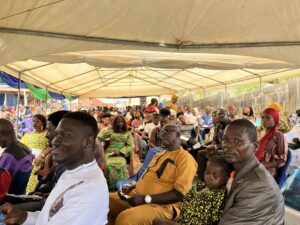Below, please find an excerpt from an email Dr. Glick sent back to Buffalo in May of 2023 while on a trip to visit our Jericho Road clinic in Nepal.
This morning we got up really early and drove two hours to a remote village close to the Tibet border. Watching the sun rise across these rugged beautiful Himalayan mountains is truly an amazing experience. We chose this particular village to do a one day mobile clinic because these villagers have been walking six hours to visit our health center in Hagam. When we arrived it seemed like the village was still asleep and the building we were supposed to do the clinic in was locked. We eventually found the person with a key, realized the building was empty and dirty and so we worked together to sweep the floor (using homemade brooms) and then borrowed furniture from a nearby school. Eventually, we had a reception area, pharmacy and three exam rooms. By the time we were ready, the village had woken up and a crowd gathered. Word soon spread to surrounding villages of our presence. Our team of four medical providers (myself, Dr. Takrani, Dr. Jaffry and Han Moe-yes Han Moe sees patients, cooks pancakes for our breakfast, leads the team and is constantly doing something) saw 148 patients today. Unfortunately, by 4 pm we needed to turn about 50 people away because we did not want to travel these crazy roads after dark.
Many of the patients we saw today presented with vision problems. Blurry vision that has gradually dimmed over time. None of the 148 patients wore glasses. Many had cataracts. I never get used to the reality that most of us who live in Buffalo take for granted that we can preserve our vision by getting glasses and cataract surgery anytime we need it and yet in a remote village in Sierra Leone or Nepal, this is not even an option and so the light slowly goes out as these patients age. Thankfully, today we brought 190 pairs of glasses and so for a few people, we were able to make them very happy by restoring some of their sight. Someone to do cataract surgeries would be even better. How these elderly mountain people navigate these steep mountain trails almost blind is incredible.
We also saw many elderly people with orthopedic problems. I suspect the wear and tear on their bodies as they climb up and down these mountains sets them up for arthritis. Thankfully we are able to do joint injections and provide medication that brings some relief to their pain. I enjoyed working today with our two resident physicians to teach them how to do injections. We probably did twenty joint injections.
These rugged mountain people are quite healthy. We saw very little hypertension, diabetes, malnutrition or infectious disease. Unlike Sierra Leone and Congo, there is no malaria in these mountains.
Some of you know that we have submitted a grant request for a considerable amount of money that we will use to strengthen our global maternal health program in all three countries that we work in. We want to equip each of our five health centers with the staff, supplies, equipment, ambulances and training that they need to take care of pregnant mothers, well. We are hoping to be able to bring the Priscilla Project (that serves our pregnant mothers so well in Buffalo) in some form to each of our global sites. We want to do our very best to prevent mothers from dying during their pregnancy and during childbirth. Today, one of our Nepali colleagues did a survey of many of the village women who showed up to our clinic. She asked them questions about their childbirth experiences. Overwhelmingly, the women told us they delivered their babies at home with the help of an untrained family member or friend and that they had not attended any prenatal visits! So far this year more than 100 Nepali mothers have died during childbirth in remote villages like the one we visited today. Reviewing the data we collected from women today makes me realize how much more needs to be done.
I think sometimes when I am in Buffalo I start to get comfortable and my vision starts to get a little blurry. I forget about the tremendous gap in access to health care that exists between countries that have more developed health care systems and the remote places like the Himalayas where even basic stuff like eyeglasses, cataract surgery, prenatal care and a trained person to deliver a baby are hard to come by. But every time I come to Sierra Leone, Congo or Nepal my vision sharpens again and I start to dream about that day coming when every one, no matter the color of their skin or where they were born, will have access to quality health care. I recommit myself to do everything I can to lead Jericho Road to do what we can to make a difference. Our work in Buffalo and around the world matters. It all matters.
May God grant us the clear vision to redouble our efforts to do this work well.
Thank you for praying for and supporting this work.
God Bless,
Myron Glick
Founder and CEO of Jericho Road Community Health Center

